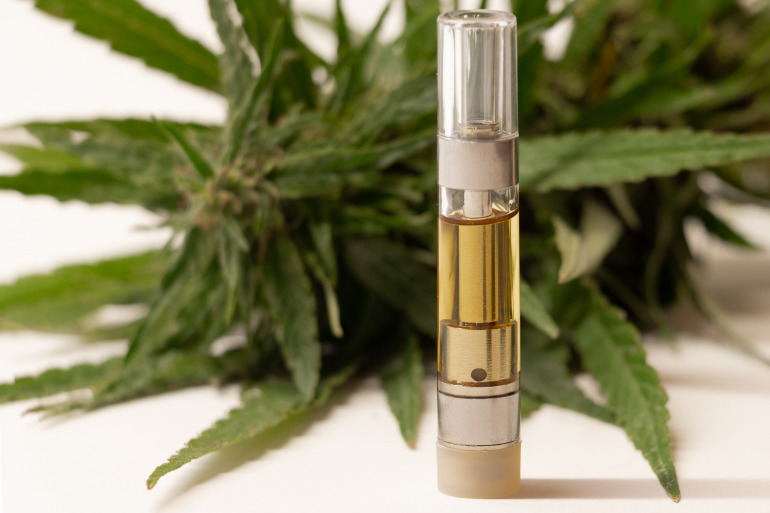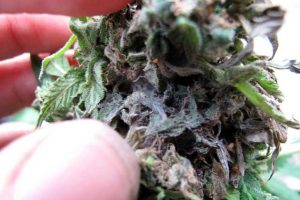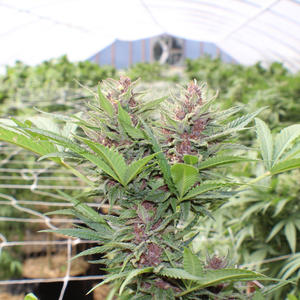Delta-8 THC is becoming insanely popular in states where cannabis is still illegal. This cannabis compound is nearly identical to Delta-9 THC, better known as the active compound in cannabis known for causing an intoxicating effect or high. However, while Delta-8 THC is similar to traditional THC, it tends to feel much less potent. Here’s the skinny on all things Delta-8 THC.
What is Delta-8 THC?
Like Delta-9 THC (the kind that gets you high), Delta-8 THC is a chemical compound found in both cannabis and hemp plants. It offers the same physical and mental effects as ordinary THC, though they differ slightly in their chemical structure. This tiny difference makes it so that Delta-8 THC feels almost the same as THC, though somewhat less potent. That’s why many users have started referring to it as “diet weed”.
Additionally, Delta-8 THC is usually extracted from hemp plants since farming hemp is legal in the US. Delta-8 THC can be synthesized from CBD by refining CBD into an isolate and then transforming it into Delta-8 THC. Even though it’s made from CBD, it’s closer to THC in its effects.
For example, Delta-8 THC bonds to our endocannabinoid systems to promote effects like ordinary delta-9 THC. Because of its chemical structure, it feels much less intense than the high caused by delta-9 THC. This is why so many people use it against anxiety as well as other physical and mental ailments where delta-9 THC can feel too intense.
That said, if you live in a state that doesn’t have legal cannabis yet or if you’re looking for something similar to THC that won’t hit you so intensely, you’ll probably like Delta-8 THC. The high feels clearer and more relaxed while providing many of the effects you’d appreciate out of THC.
What’s the difference between Delta-8 and Delta-9 THC?
While the biggest difference between Delta-8 and Delta-9 THC is their chemical structure, Delta-8 THC affects our bodies slightly differently. Unlike standard THC, Delta-8 binds to the endocannabinoid system (ECS) a little bit differently. Delta-8 THC has a double bond on its 8th carbon chain, while Delta-9 has it on the ninth carbon chain. This small detail makes a huge difference in the ECS’s ability to process these cannabinoids. This positioning decreases some of the effects of THC in the time it takes the ECS to process it. This is largely why science suggests Delta-8 THC feels less potent than ordinary THC. However, Delta-8 is still relatively new to the scene, and further study is needed to solidify these ideas into facts.
Does Delta-8 THC Get You High?
Yes, Delta-8 THC will get you high. It just doesn’t feel as potent as delta-9 THC, and it tends to feel a little more clear-headed. It’s an excellent choice for people who like the effects of THC against physical or mental ailments but don’t like to feel stoned. Its less intense effects are significant for symptom management without anxiety or paranoia. It’s also used in many places where cannabis is still illegal, thanks to the loophole in its legality that we’ll break down below.
What are the effects of Delta-8 THC?
Delta-8 THC offers all the same effects as Delta-9 THC, including relief from pain and inflammation, appetite stimulation, muscle spasms, and anti-cancer effects. It just feels less intense, meaning it has the added bonus of acting as an anti-anxiety. Many users also report feelings of happiness, euphoria, and a potent mental lift. Some people even use it for insomnia.
Also similar to Delta-9 THC, Delta-8 THC will cause the same side effects. You’ll likely experience dry eyes and cottonmouth as well as possible short-term memory loss or a case of the munchies. Unlike standard THC, more research is still needed on Delta-9 THC to depict the full spectrum of its effects accurately.
Is Delta-8 THC Legal?
The answer is both yes and no. Under the 2018 Farm Bill, hemp products were deemed legal and usable on a federal level as long as they contained less than 0.3% THC— that is, Delta-9 THC specifically.
Since Delta-8 THC comes from hemp and is synthesized from CBD, it’s in a legal purgatory at the moment. Eleven states have already addressed the legality of Delta-8 THC and deemed it illegal due to its similarities to Delta-9 THC, a schedule 1 substance. Other states, however, allow Delta-8 THC or are actively looking for ways to address the situation.
The DEA is trying to figure out this legal loophole, too. Since Delta-8 THC comes from hemp and not cannabis, it’s technically legal to grow, use, and sell. However, the DEA introduced an interim rule last year to further differentiate between cannabis and hemp. That interim rule said: “All synthetically derived tetrahydrocannabinols remain Schedule I controlled substances,” which would make delta-8 illegal on the federal level, should it pass.
However, with cannabis being completely legal in 18 states and medically legal in 36 states, most retailers choose to follow state laws over federal laws anyway. The best course of action is to check the laws in your state and follow those. The DEA’s IFR is open for review until October 2021, so until then, delta-8 THC is in a legal gray area.




